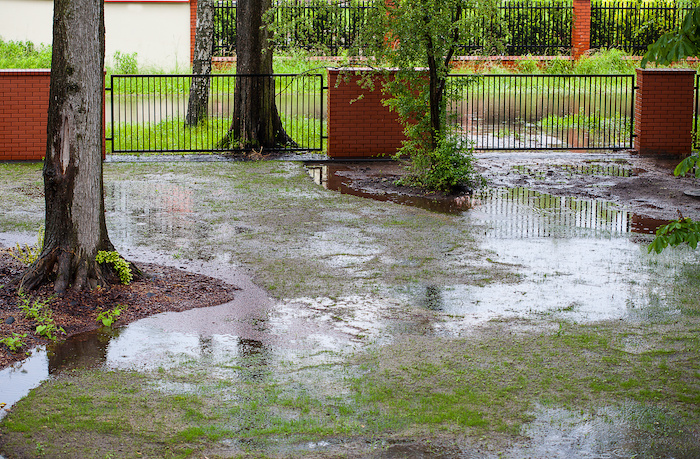By Nadia Ramlagan, North Carolina News Service
Last year was the second-wettest on record for North Carolina, and communities across the state are looking for better ways to deal with intense rainfall and costly flooding.
The North Carolina Coastal Federation’s new plan shows natural water-management techniques, like rain gardens and watershed restoration, to absorb heavy rainfall and help prevent dangerous flood conditions.
Yaron Miller, officer for the Pew Charitable Trusts’ Flood-Prepared Communities initiative, said nature-based solutions are both cost-effective and practical.
“And in a fast-growing state like North Carolina, these challenges are often compounded by the fact that traditional development uses impervious surfaces, like concentrate and asphalt, which prevents rain from soaking into the soil,” Miller explained.
The American Society of Civil Engineers included stormwater for the first time on its latest Infrastructure Report Card.
The nation received a “D” for stormwater management systems. This also affects water quality, because polluted runoff from pavement flows into nearby rivers and streams.
According to the report, it’s estimated runoff has contaminated around 13 million acres of lakes, reservoirs, and ponds nationwide.
Burrows Smith, managing partner of the River Bluffs Development Group, said decades of experience and science show fewer flooding incidents and cleaner water in watersheds where natural hydrology is protected or restored.
“The number one thing is if you can slow it down, you don’t flood out people downstream,” Smith observed. “So, all that water doesn’t go run down a river and get bottled up somewhere and then, go over the boundaries of the river and start flooding home sites and crops, and stuff like that.”
With state lawmakers allocating more than $1 billion in recent years for recovery efforts after hurricanes, Smith hopes other developers see the economic benefits to incorporating natural stormwater solutions into their projects.
“And really, what I’d like for them to understand is, it’s simpler, and it’s more cost-effective and it’s cheaper to do it my way,” Smith asserted. “So, that’s what this initiative is trying to do, is to educate people and show by example.”
The action plan calls on state and local governments to lead by example, and increase outreach and training on nature-based stormwater and watershed-management strategies in their communities.




Hey, I got it, just ban rain, just like CO2 from wild fires and rotting vegetation contributes to “global warming”, while blaming it entirely on humans, humans should be blamed for rain! Maybe a tax will help!